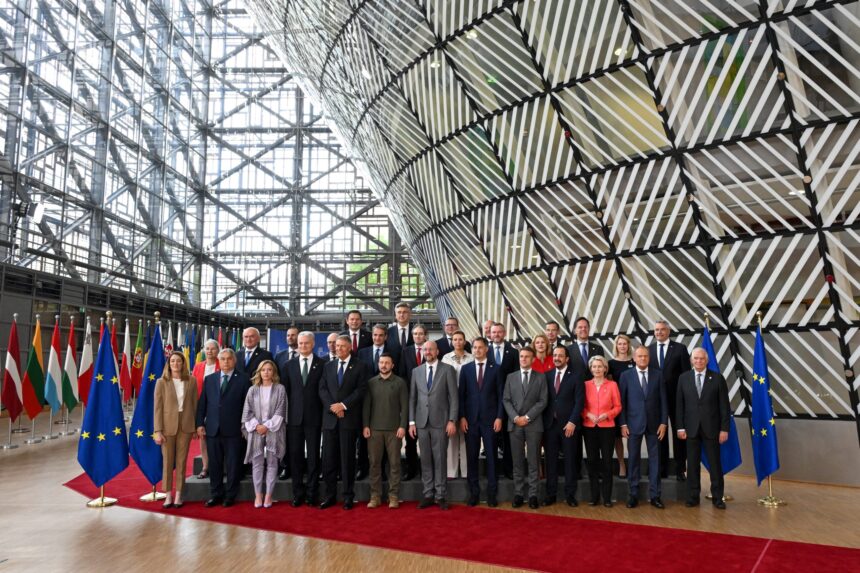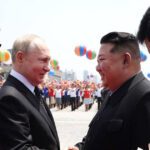The article delves into how European Union (EU) member states, despite being part of a collective framework, exhibit diverse and sometimes divergent strategies towards Africa:
- Historical and Cultural Influences:
- France: Maintains a historically close relationship with its former colonies in Africa, known as Françafrique. This includes extensive diplomatic, economic (through the Agence Française de Développement), and military presence across the continent. Despite recent reductions, French troops are still stationed in several African countries, underscoring ongoing strategic interests.
- Italy: After a period of limited engagement, Italy has revitalized its approach since the early 2010s, underlined by initiatives like the Piano Mattei and the Rome Process. These emphasize investments in education, health, and infrastructure, alongside military training missions and expanded diplomatic presence.
- Germany: Initially focused on development aid, Germany has shifted towards a broader strategy outlined in its New Strategy for Africa (2011) and subsequent updates. This includes enhanced security cooperation (supporting UN and EU missions), economic partnerships, and a greater role for the private sector.
- Spain: Traditionally less involved in African affairs, Spain has increased its engagement since the 2000s, highlighted by the Third Africa Plan and subsequent strategic frameworks aimed at fostering productive relationships beyond security concerns.
- Policy Frameworks and Strategies:
- Each country’s approach to Africa is shaped by its colonial history, economic priorities, and political leadership. This results in varied levels of diplomatic, economic, and military involvement across different regions of Africa.
- Countries like Portugal, through the Community of Portuguese-Speaking Countries (CPLP), leverage historical ties to enhance their international influence, while smaller EU members like Sweden and Denmark focus on development-oriented engagements, emphasizing human rights and climate change.
- EU Collective Efforts and Challenges:
- Despite individual strategies, there are collective EU efforts aimed at shifting from traditional development aid to more equal partnerships with Africa. Initiatives such as the EU-AU Joint Vision for 2030 reflect this aspiration, though challenges persist in aligning member states’ actions with EU-wide objectives.
- The article critiques inconsistencies between EU rhetoric on partnership and actual practices, particularly regarding security cooperation and migration policies. This suggests a disconnect between stated goals of partnership and the realities of EU member states’ actions in Africa.
- Macron’s Approach and Criticisms:
- President Macron of France has sought to redefine French-African relations, distancing from neocolonial perceptions with initiatives like the reform of the West African franc CFA. However, his policies have faced criticism for maintaining significant military involvement and economic influence, raising questions about the effectiveness of rhetoric versus practical outcomes.
- Conclusion on Multi-speed Engagement:
- Overall, the article portrays a multi-speed Europe in its engagement with Africa, where different member states pursue distinct trajectories influenced by historical legacies, economic interests, and evolving geopolitical priorities. Despite these differences, there is a shared narrative of reevaluation and renewal in EU-Africa relations, suggesting a complex but interconnected approach towards common goals of partnership and development.
These aspects illustrate how European countries navigate their roles in Africa within a broader EU framework, reflecting both historical continuities and contemporary shifts in policy and strategy.
The relations between the European Union (EU), its member states and Africa have been periodically “re-launched”, shedding light on Europe’s fatigue in setting up a path of cooperation capable to counter lingering mistrust, embedded in the heavy legacy of colonialism. At the same time, these relaunches show the EU’s attempt to preserve their long-standing ties with former colonies as providing a “fundamental sense of safety” in the EU’s ontological (in)security. In this context, Brussels has assumed an increasingly prominent role by promoting a series of continental and regional strategies that have seriously (re)casted the EU’s actorness in Africa.
This notwithstanding, the European action seems to be anything but homogenous, and different trajectories emerge when the analytical lens is placed on MSs, shedding light on a European differentiated engagement that seems to hint at a multi-speed Europe beyond its borders.
A Differentiated Framework Among EU Member States
EU MSs strategies and policies towards African countries have been largely steered by their colonial history, economic priorities, networks, as well as the political orientation of national governments; hence, it does not come as a surprise that the nature and extent of their engagement have varied significantly.
France, which has cultivated an intimate relationship with the continent – notably with its former colonies, that broadly converged in the concept of Françafrique – in an attempt of preserving its global stance after the post-World War II (WWII) downsizing, has long driven the European frontline. Paris’ role cannot be reduced only to geopolitical interests, but the French projection responds also to economic interests and cultural ties as shown by its wide range of means of engagement. Besides informal networks and personalistic connections – which have represented a strong French tool for maintaining close relationships with African partners and élites – France has relied on a multitude of formal channels and arrangements that have structured its action along institutional, economic and military paths. The second-largest number of diplomatic representations in Africa after China – 46 embassies in 54 African countries, 47 including the French Embassy in Niger currently suspended – goes hand in hand with the role of the Agence Française de Développement (AFD), which contributed to more than 50% of French bilateral ODA in Africa in 2022. Institutional ties are then completed by the Sommet Afrique-France – the French version of the Africa+1 summits since 1973, and being the oldest of its kind – and by the West African franc CFA currency (the formal economic monetary arrangement linking West and Central African countries to Paris). Last but not least, the French military presence in the continent – although drastically diminished recently – still represents an important tool for Paris which has troops located in Chad, Djibouti, Côte d’Ivoire, Gabon and Senegal.
Other European actors have taken a more central role in the last decade. This is the case of Italy which, after a long phase of almost inaction, has experienced a relaunch of its relations with the continent since the early 2010s with a new series of initiatives and greater diplomatic engagement. A recent, significant boost has been given under the presidency of Giorgia Meloni. The Piano Mattei – the new Italian investment plan focused on education, health, agriculture, water, energy, and infrastructure which aims to mobilise up to 5,5 billion euros by 2027 – and the Rome Process – the Italian migration action plan presented at the International Conference on Migration and Development in July 2023 – represent the two main policy frameworks through which the Italian engagement is structured. This adds to the launch of a bilateral military training mission in Burkina Faso in 2023 – in addition to the one in Niger and still active, MISIN, since 2018 – and to the recent opening of the Italian Embassy in Mauritania, which brought the number of Italian embassies in sub-Saharan Africa to 24, plus 5 in North Africa.
On a similar trajectory, Germany, which has long maintained a low-key posture towards Africa, restraining itself to a development-oriented approach and mainly under the EU umbrella, has also rethought its African policy since the early 2000s. The new approach was codified in the 2011 New Strategy, then followed by the 2014 Policy Guidelines for Africa, and eventually revised by the 2019 Enhanced Partnership with Africa. The new policy clearly expands the scope and the depth of the German engagement by structuring a new comprehensive framework, including new security and migration priorities and a greater role for the private sector. An enhanced involvement is also testified by Berlin’s troop contributions to UN and EU-led missions in the continent, but also by the support to the G5 Sahel Alliance.
To a much lesser extent, other European countries have also developed their own African approach. This is the case of Spain, which, despite being traditionally relatively shy towards the southern shores of the Mediterranean and beyond, only turned its attention to Africa in the early 2000s under the Zapatero presidency. The 2019 Third Africa Plan, followed by the Moncloa’s Foco África 2023 – its implementation action plan – represented an innovative attempt by the Spanish government to develop a comprehensive continental strategic framework. The Spanish approach not only sets the strategic objectives of Spain’s African policy, with the aim of drawing a more productive relationship with the continent and moving beyond narratives of securitisation, but also identifies clear geographical focus through “priority” and “anchor” countries mostly spread across North Africa, West Africa and East Africa, but also Southern Africa.
Differently, Portugal has re-built relations with the continent by capitalising on pre-existing colonial ties. The creation of the Community of Portuguese-Speaking Countries (CPLP) in 1996 represented a milestone in the evolution of Portugal’s foreign policy. Although no dedicated policy or strategy has ever been drafted by Lisbon, Africa has represented an important vector for Portugal’s international stance, especially in multilateral fora, including NATO and the UN, but also within the EU. The perception of Africa as a strategic opportunity for international positioning is something in common also to other small- or medium-sized countries, such as Sweden, Denmark and, partly, Finland, which have mostly adopted a development-oriented and rules-based engagement with the continent, stressing the need to tackle inequalities, fight climate change, and promote human rights and democracy. Thematically speaking, the same approach has been implemented also by the Netherlands, while a more prominent position has been taken by Belgium which has benefited from a longer and more structured relations with Africa.
If a few references to migration are included in the newer Swedish and Danish strategies, migratory flows are much more central in Hungary’s 2019 Africa Strategy which identifies an effective management of migration as “the fundamental point of the foreign trade and external policy towards sub-Saharan Africa”. Other former Soviet countries, such as Czech Republic and Estonia, have also developed their on-paper strategies, pointing at the strategic importance of deepening ties with Africa, tackling irregular migration, supporting stabilization and countering Russian influence in the continent. African strategies have also been drafted by other European countries whose engagement remains however limited, such as Ireland, Slovenia, Malta and Austria.
Brussels, EU Capitals, and Elements of Convergence
Europe-Africa relations have been periodically relaunched with the aim of shifting from development cooperation to a “partnership of equals”. If the Cotonou Agreement – the Treaty governing the EU’s relations with the African, Caribbean and Pacific Group of States (ACP), now replaced by the new Samoa Agreement – was originally meant to operationalize such a shift, the 2022 EU-AU Joint Vision for 2030, recalls the same “relaunching” narrative more than 20 years later. However, this does not seem to be EU-exclusive, but it echoes in most of the discourses put forward by European leaders as it comes to relations with Africa.
The Macron Presidency sought to renovate the relations with the African continent by distancing himself and its government from traditional patterns and neocolonial reminiscences. His speech at the University of Ouagadougou in November 2017 was supposed to mark a break in French policy as “there no longer is a French policy for Africa”. Macron’s recasting attempt was substantiated by some concrete steps. The 28th edition of the Sommet Afrique-France held in Montpellier in 2021 saw, for the first time since its launch in 1973, the participation of civil society representatives instead of heads of state and government. Macron has also supported the reform process for the West African franc CFA currency, leading to the 2019 new monetary cooperation agreement between France and the Union économique et monétaire ouest-africaine (UEMOA). This notwithstanding, the French president has hitherto failed to attain its redrawing goals. In November 2023, the French National Assembly has opened a parliamentary debate, drafting a final report “sur les relations entre la France et l’Afrique” which has once again called for a new “change of style” only five years after Macron’s 2017 Ouagadougou speech, claiming for greater readability, wider thematic priorities, and non-traditional means of engagement. While charting the future of French policy in Africa goes beyond the scope of this article, similar narratives echoes in other EU MSs, despite their completely different trajectories and positionings in the continent.
This is clearin the case of Italy where Meloni’s narrative strategy has strongly pointed to a new “equal, fair and non-predatory” partnership to relaunch and redraw the relations with African countries. The Italian government has indeed sponsored the new approach of the Piano Mattei, presented at the Italy-Africa Summit in January 2024, as a policy innovation to move beyond a paternalistic relationship. A similar rethinking debate is emerging also in Germany. In 2023, the Federal Ministry for Economic Cooperation and Development (BMZ) adopted the new ministerial strategy Shaping the future with Africa calling for a “partnership based on respect and reciprocity” and “build an open and honest dialogue”. This adds to Joint Futures – the Megatrends Afrika platform supported by the German Federal Foreign Office – which has promoted a national debate to re-imagine the future of African-German relations. To a lesser extent, Spain’s Minister for Foreign Affairs, José Manuel Albares, has recently, five years after the adoption of the Third Africa Plan – which already represents on its own an attempt of departure from previous cooperation patterns – stressed the need “to launch a new stage in relations between Spain and Africa based on [a new] awareness”. Other countries with a much less structured engagement have also embraced similar tones, as in the case of Denmark whose Minister for Foreign Affairs, Lars Løkke Rasmussens, called for “a new approach, not only think[ing] in terms of emergency aid, but much more about cooperation on equal terms”.
Old Wine, New Labels: Back-and-Forth Europe
The African puzzle of EU MSs engagement appears thus to be highly fragmented and differentiated, but similar narratives are identified in an attempt to recast the European action. The relaunching rhetoric appears coherent within the EU framework, emerging as a recurring pattern in the European interaction with Africa. While tracing its roots would require more attention to the coloniality of power characterizing the paternalistic nature of their relations, it is here worth grasping the inconsistency between narratives and practices as a common thread in a highly differentiated framework.
Macron’s change of style clashed indeed with the practice as it coincided with the French largest military exposure in sub-Saharan Africa, particularly in the Sahel. The franc CFA reform was also criticized as a pseudo-break from France as the currency would have remained pegged to the Euro and the agreement was negotiated outside the ECOWAS framework, thus excluding English-speaking countries. In addition, the recent migration deals signed at both European and national levels and sponsored by Mediterranean countries, above all Italy and Spain, seem also to clash with the relaunching strategy promoted by EU MSs for a business-as-usual line of action. At the EU level, the 2024 mid-term revision of the EU Multiannual Financial Framework 2021-2027 points in the same direction by increasing the funds for security and migration, while the larger use of the European Peace Facility (EPF) – the EU’s off-budget instrument to finance military and defence operations – represents another element of discrepancy with such a narrative.
European interaction with Africa appears thus anything but innovative, but willing to relaunch the relations with the continent by selling the same wine under new labels. In what seems to be a EU back-and-forth ballet, it is here worth grasping the multiple speeds of EU MSs engagement with the continent, providing a highly fragmented and differentiated picture. Here, quite different paces and rhythms – with some countries speeding up, others slowing down, while still others looking out of their window for the first time – are coupled with a converging recasting narrative that seems to eventually suggest that their destinations will not be too far apart.
By: Luca Saviolo
Source: ISPI







